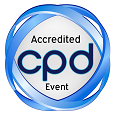
Annsofie Adolfsson
Orebro University, Sweden
Title: The EKO-Model gives empathy knowledge and care to women in their issue during the reproductive health life
Biography
Biography: Annsofie Adolfsson
Abstract
EKO -Model gives empathy knowledge and care to women in their issue during the reproductive health life. Approach to caring requires that healthcare workers are also knowledgeable in how to confirm that a patient has suffered one or more suspected miscarriage or IUFD. Through understanding and training in the EKO approach healthcare professionals increase their ability to be sympathetic and empathetic to a patient’s needs, whether they are meeting with them or talking to them on the telephone. Sexual and reproductive health and how interact in peoples and families life’s and physical and psychological health and wellbeing. Sexual and Reproductive Health is a cross-sectional science and include medicine, psychology, sociology and caring science. In the area of Spontatneuts Abortion, Miscarriage, Invitrofertilisation and Adoption. Widespread Sexual Violence: Impact on post assault reproductive health practices by women victims and on health system. Women with diabetes are studied in the research project ‘Maternity and Diabetes’ This project was developed for MODIAB-WEB. Intimate knowledge about how the grieving process works is essential to be able to provide optimum support to the patient. It may be that this support gives them the courage to try to conceive again. One key aspect of the EKO-model is open and clear communication between the healthcare personnel and the patient, whether face-to-face or remotely. The structured EKO conversation provides a viable tool to help healthcare professionals assist patients in coming to terms with their loss. Research shows that, when the EKO-model is used, patients feel that they have received the proper professional care when they needed it. The EKO-model recommends offering to meet the patient one or two times but more sessions can be scheduled as necessary.

